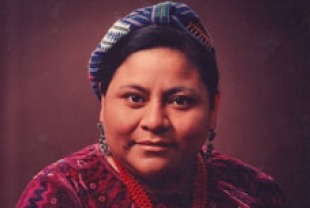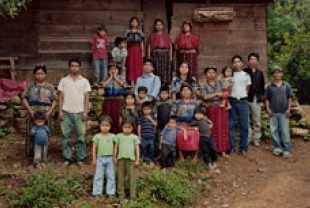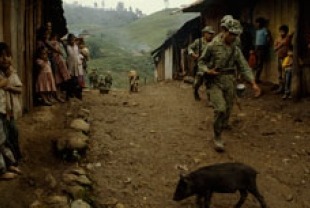National broadcast premiere on PBS on Thursday, June 28th at 10PM (check local listings). Available to stream online at www.pbs.org/pov from June 29- July 28.
The idea of human rights claims that all human beings possess the same basic rights, no matter what their differences are, and that these rights put us in a reciprocal relationship of obligation to one another. Since human rights are the common birthright of every human being, respect is owed to all. Yet these human rights are still widely denied, evaded, or ignored around the world.
On its twenty-fifth season on PBS, POV (Point of View) presents the human rights case against Efrain Rios Mont, former Guatemalan general and dictator, who was responsible for committing genocide against the country's Mayan people during the 1980s. This story of crime and punishment was catalyzed by a 1982 documentary titled When the Mountains Tremble directed by Pamela Yates and Thomas Sigel.
Yates and Sigel went to Guatemala in 1983 to film the clandestine civil war between the dictator's military and the Indian guerrillas. With the help and guidance of the United States, which supplied funds, arms, and training in counterinsurgency techniques, the generals and their underlings carried out a massive campaign against the indigenous people leading to the deaths of 200,000 men, women and children (45,000 of whom were "disappeared").
Given her ardent feelings about the pain and suffering of the Guatemalan people and the injustice of not bringing to trial those responsible for the crimes against humanity, Pamela Yates is buoyed up with the news that a Spanish lawyer is investigating the possible human rights violations of the Rios Montt regime and wants to use information contained in When the Mountains Tremble as evidence of what went on when she was filming the documentary.
A team forms around her to take on this important human rights mission including Rigoberta Menchu, the Mayan woman activist who served as storyteller in When the Mountains Tremble and in 1992 won the Nobel Peace Prize; Gustavo Meono, a former guerrilla commander who has learned a lot about state terror; Naomi Roht-Arriaza, a key international lawyer; and Fredy Peccerelli, the head of the Guatemalan forensic anthropology team.
It is fascinating to watch Pamela Yates' intense commitment to this cause and to see her excitement over footage from the past which can play a part in making the case of genocide against the still powerful Rioss Montt. The title of the documentary means "a tiny grain of sand" which can help tip the scale of justice.
After Granito: How to Nail a Dictator was completed, Rioss Montt was indicted by a Guatemalan court for crimes against humanity. Yates and her team can be proud of their work to make this conviction possible. Their film is a noble tribute to the slain Guatemalans.



